Growing up Lutheran and attending a small village church, I didn't have much opportunity to celebrate Lent. There was certainly no pastor available to come around for a mid-week Lenten service. We never had ash put on our foreheads and we were never asked to give up anything precious for Lent.
A Minnesota woman recently wrote to me saying she was in charge of doing some Lenten programs at her Protestant church and wanted to know if I could give her some information on Celtic Christianity and Lent. I replied that my study of the Celts (limited as it is) has been devoted to the pre-Christian Celts. I did recommend two great books that I own: "Anam Cara: A Book of Celtic Wisdom" by John O'Donohue and "366 Celt: A Year and a Day of Celtic Wisdom and Lore" by Carl McColman. (The latter book encompasses both pagan and Christian Celtic wisdom.)
Intrigued by her idea, I searched the web and found some other books and some links that I thought might prove helpful to her. One link, especially, spoke to me. It is the website of author Joyce Rupp, who is a member of the Servites (Servants of Mary) community.
In a section of the site called "Celtic Crossovers: May The Lent Of The Irish Be With You", Rupp suggests seven ways "to let Celtic spirituality be your guide this Lent".
I think these "stepping stones for our spiritual growth", as Rupp describes them, could be beneficial for anyone, Catholic or Protestant, Christian or not, as we slog through the rest of winter and anticipate the coming of spring.
I especially liked three of these Celtic aspects and am printing them below. (I am glad she substituted the word Creator for God at certain places. I think we could also substitute Spirit or Goddess as well, or any name by which you address your Creator.)
THE PRESENCE OF GOD IN THE ORDINARY
"Every aspect of Celtic life was approached as an opportunity for union with the divine. The Celts believed that God permeated every part of their life, and they sensed this presence everywhere. Their faith assured them that God was lovingly concerned about each of their daily moments, no matter how ordinary or mundane.
"There is evidence of this especially in the Carmina Gadelica, a marvelous resource of prayers and blessings that Alexander Carmichael collected in the 19th century during his 60 years of travel among Celtic people in the western Scottish islands. These prayers are filled with the Celts' ordinary moments. They sang and prayed while they were working at outdoor tasks such as fishing, herding sheep, and milking cows or indoors with the household duties of kindling the hearth, weaving cloth, cooking, and cleaning. From rising to sleeping, from birth to death, they embraced God in their lives.
"We can do the same. The setting for our prayer is different from that of the Celts, but, like them, we are immersed in ordinary events and God is still in our midst. Our Celtic praying today can be about such things as sitting at computers, traveling on expressways, going to the supermarket, watching football games, or caring for children . . .
"I recently suggested to a young father that he bless his three small children each day. He looked surprised and said, "Can I do that? I thought only priests could bless. How would I do it?" I described how the Celts easily extended blessings and assured him that each of us can and ought to also entrust our loved ones to God each day. I explained that all his blessing needed was the loving touch of his hand on his children and a brief "May God and the angels guide, guard, and protect you this day (or this night).
"Lenten practice: Choose one thing that you do everyday such as brushing your teeth, getting dressed, turning on your computer, eating, rising from bed in the morning, or going to sleep in the evening. As you do this action, pause to remember that God is with you. Do this every day for the entire six weeks. Or choose to bless your children each morning and evening."
Here is a poem by Rupp celebrating the presence of God in the ordinary:
A CELTIC MOMENT
"In the milking of cows and tending the hearth,
in threading the loom and gathering the peat,
the breath of prayer blessing each movement,
a naming of Creator upon each mindful deed.
Not in our kingdom of busyness,
not in our land of lost simplicity,
yet the Celtic grace of looking deeply
and the Celtic faith of believing fully
lives on enduringly within each of us,
beseeching our beholding.
Like the unceasing prayer of Celts,
an ancient call to gather the ordinary,
savor the sacrament that lies within,
bless whatever life offers to us
in the routine, the mindless, the duty,
the cherished, the surprising, the serene.
Let our open gaze fall faithfully
over a stretch of hurried days,
see among their swiftly moving pieces
a story threaded with touch of Divine.
Celtic moment, Soul moment, Sacred moment,
in simple task or thin veil of mystery,
whatever our day brings we can bless,
whatever our lives hold we can reverence.
Gather all to our soul:
the silent sparkle of untamed moments,
the hurried haze of endless duty,
the silky joy of surprising experience,
the shadowed grasp of unwanted pain.
Recover the lost cloak
of Celtic rhyme and Celtic rhythm,
put on the rich garment
of intentional communion,
embrace the commonness of life
woven on the endless loom of the Holy."
DISCOVER THE GOODNESS OF CREATION
"The Celts were deeply wedded to nature. It was through creation that divinity was most manifest for them. They experienced a oneness with God in hills, stones, springs of water, caves, and many other parts of creation. In a manner reminiscent of the Hebrew psalms, cosmic elements such as the stars, sun, and moon are threaded through Celtic prayers of petition, praise, and blessing. They call out to the "son of the dawn, son of the clouds"; they behold the "lightener of the stars" and celebrate "thou bright white moon of the seasons.
"Many of us today live within the walls of home, work, and recreation, rarely venturing far into the world of creation unless it is a special outing to the beach, park, or a sporting event. Even those who work outdoors or spend time there recreationally often fail to give attention to the sacredness of the created world. Yet creation offers a wonderful opportunity to enter into oneness with the Creator. All it takes is a deliberate turning of the heart and a desire to be present to the wonders inherent in nature.
"Lenten practice: Make a deliberate effort to listen to the created world each day. Pause to look at a plant or gaze at the moon. Pay attention to the falling snow or the first new buds on a branch. Notice the clouds or the shape of a flower. Listen to the sea or the sound of the wind. Receive the deeper messages hidden in these gifts of creation."
SILENCE AND SOLITUDE
"The Celts valued silence and solitude in their simple, ascetic rural lifestyle. Sometimes individuals chose to live in very remote areas where they could experience a deep and strong bond with the ruggedness of land and sea. It was here that they most knew the mystery of creation and the Creator.
"Silence and solitude clear out the complex cobwebs of our daily rushing and provide a space in which to renew the purpose of our relationships and our work. It is hard to find silence and solitude where most of us live now. These valuable requirements of spiritual growth are not easily available to us. However, we can find reflective spaces if we are intent on doing so by turning off the car radio, watching less television, or turning inward when we are engaged in activity that allows for inner quiet such as spending time in the garden, working on the car, commuting on the train or bus, or going for a walk or other forms of exercise. While we do these things we can intentionally turn toward the divine presence within us and around us.
"Lenten practice: Choose a time once a day where you can have a time for stillness and quiet listening."
For all seven of Rupp's Lenten stepping stones, go to:
http://www.thefreelibrary.com/Celtic+Crossovers:+May+the+Lent+of+the+Irish+be+with+you-a071251635
Here is a link to the full texts of the Carmina Gadelica:
http://www.sacred-texts.com/neu/celt/cg1/index.htm.

















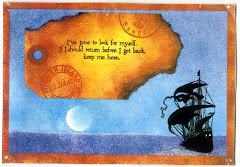














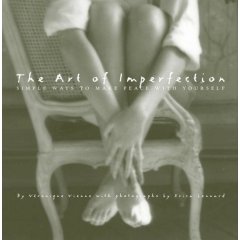
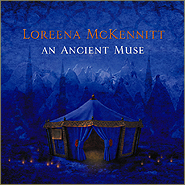

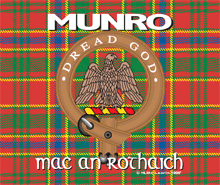
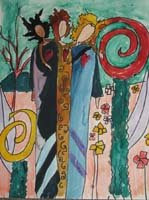

10 comments:
What a marvelous post, Julie. I love the silence and solitude. Also find being in the Presence meaningful.
In the Seventh Day Adventist Chruch...it was simple,"Pray constantly." It was about not taking your mind away from God. You needed him in all things. My Grandmother who was Irish and English was raised Cathalic, but as a adult became a SDA. Her Bible was never closed.
As kids we would say she was our hook up to God.
This was a interesting post. I do believe that we should be still and know God. We live in a very turned up world, TV, I-Pods, cell phones...I am grateful for soft days. Hugs, Mary
Julie, I always learn something new when I come here. Thank you for another beautiful post. I'm not a religious person but more spiritual, and these ideas fit right in with me.
A truly beautiful post, as always Julie. I loved the tenets proposed as well.
Gorgeous images Julie. I wish that Celtic spirituality could be my guide
all the time. Sensing a spiritual presence in the ordinary and especially in nature is a part of who I am.
Love to you!
:-)
Absolutely fabulous! So much good information.
Really wonderful, Julie!!! I need a Lenten reminder! I always feel Celtic in the spring time....Irish Soda Bread for St. Patricks, etc.
Seeing the world become green again!
My dear Benedictine friend, Macrina Wiederkehr, was in graduate school with Joyce Rupp and they have even written a book together! Small world! (Of course the Internet helps!)
I really appreciate this post!!!!
What a beautiful post. "The Presence of God in the Ordinary" is how I try to live my life. Thanks very much for the information and beautiful images.
I'm truly enjoying the design and layout of your site.
It's a very easy on the eyes which makes it much more enjoyable
for me to come here and visit more often. Did you hire out a
developer to create your theme? Excellent work!
If you mean my banner, I used a lady who creates banners. I chose the pictures, the font and the Celtic symbols. If you mean the entire blog, I just used one of Blogger's formats.
Post a Comment